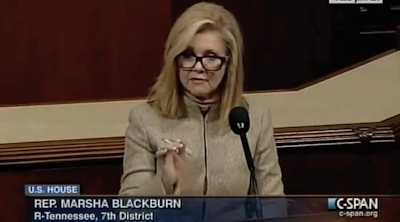The House Select Investigative Panel on Infant Lives has released its final report of a year-long investigation into the fetal parts industry. The 471-page report reads like a manual of what not to do. It details broken federal and state laws related to abortion practices, fetal tissue procurement, banking records, and babies born alive during abortions. The report lists myriads of criminal activities, troubling financial audits, and patient privacy (HIPAA) violations as well.
Ultimately, the final report looks more like a handbook of the underbelly of the abortion industry, revealing many dirty secrets.
Panel member and medical doctor, Rep. Andy Harris, commented on the final report:
The Select Investigative Panel on Infant Lives succeeded in uncovering shameful practices, which undermined the very foundations of ethical American scientific research and have led to 15 criminal and regulatory referrals. Over the course of its year-long investigation of fetal tissue procurement companies and abortion businesses, the Select Panel found evidence that several tissue procurement companies and abortion clinics may have violated federal felony laws prohibiting the sale of human fetal tissue. As a physician and researcher, it is my sincere hope that our investigation and the subsequent referrals have put an end to these shady and unethical practices.
Among the findings the Panel report cites are the following [emphasis added]:
- “The Panel also learned that abortion providers may modify abortion procedures, in apparent violation of the law, to increase the odds of getting an intact infant cadaver (e.g., increase the number of laminaria placed in a patient’s cervix to achieve greater dilation). Clearly, these factors increase the likelihood that unborn infants are born alive during late second-trimester abortions, and raise the question whether these infants’ civil rights are recognized by abortion providers.” (Final report, xxi)
- “Government investigations and whistleblower testimonies have revealed that abortion providers often fail to separate public funding from abortion-related costs.” (Final report, xxiii)
- “The Panel’s investigation revealed evidence that the IRB process used by some fetal tissue procurement businesses is often grossly insufficient. For instance, on March 29, 2016, the Panel issued a subpoena to BioMed IRB which required it to produce documents sufficient to show BioMed IRB’s ongoing oversight, within the definition of federal regulations, of any entity involved with fetal research or transplantation of fetal tissue for which it issued an IRB approval. BioMed IRB’s executive director informed the Panel on April 4, 2016, that in regards to those records, “there are none.” This is an apparent direct violation of federal regulations.” (Final report, xxi)
- “The Panel’s investigation indicates that StemExpress and Planned Parenthood Mar Monte (PPMM), Planned Parenthood Shasta Pacific (PPSP), and Family Planning Specialists Medical Group (FPS) committed systematic violations of the HIPAA Privacy Rule from about 2010 to 2015. These violations occurred when the abortion clinics disclosed patients’ individually identifiable health information to StemExpress to facilitate the TPB’s efforts to procure human fetal tissue for resale.” (Final report, xxi)
- “Additional evidence showed that tissue technicians and the abortion clinics violated the patient’s privacy rights under the Health Insurance Portability and Accountability Act of 1996 (HIPAA). Still other evidence revealed that some TPBs misrepresented that the consent forms and methods of tissue harvesting comply with federal regulations regarding Institutional Review Boards (IRBs). This evidence points toward conduct focused on profit and not on patient welfare.” (Final report, xxiv)
The nearly 500 pages are divided up by universities, medical entities, abortion facilities, and other key players. The report reveals a web of almost underground activity, with tentacles extending from each community where the practices are taking place.
No longer can the public believe abortion is an isolated choice between a woman and her physician.
Instead, the report shows — unquestionably — how inextricably linked with abortion the entire community may be in some regions. Where universities receive public funding and their medical schools work in cahoots with abortion facilities and late-term abortion doctors conduct their grisly work, entire communities have their lives affected by the business of abortion, often without knowing it.
Rep. Diane Black, a Panel member, said:
Over the last year, the Select Panel’s relentless fact-finding investigation has laid bare the grisly reality of an abortion industry that is driven by profit, unconcerned by matters of basic ethics and, too often, noncompliant with the few laws we have to protect the safety of women and their unborn children. I have never shied away from my own pro-life views, but the findings of this panel should incense all people of conscience.
The Panel, chaired by Rep. Marsha Blackburn, was formed in response to The Center for Medical Progress’ undercover videos. Blackburn has received much criticism from abortion advocates, including those on the Panel, but she persevered, determined to conclude the process. Blackburn said:
It was an honor to Chair the Select Investigative Panel. I want to thank my colleagues who are strong pro-life leaders and have worked tirelessly over the past year. It is my hope that our recommendations will result in some necessary changes within both the abortion and fetal tissue procurement industries. Our hope is that these changes will both protect women and their unborn children, as well as the integrity of scientific research.
Now that the final report has been released and the myriad criminal referrals have been issued, the fate of the abortion industry rests in the hands of the legal officials who have received the referrals and the new Congress who can take further action to defund Planned Parenthood.
The Panel report has concluded, but the story is far from over.







